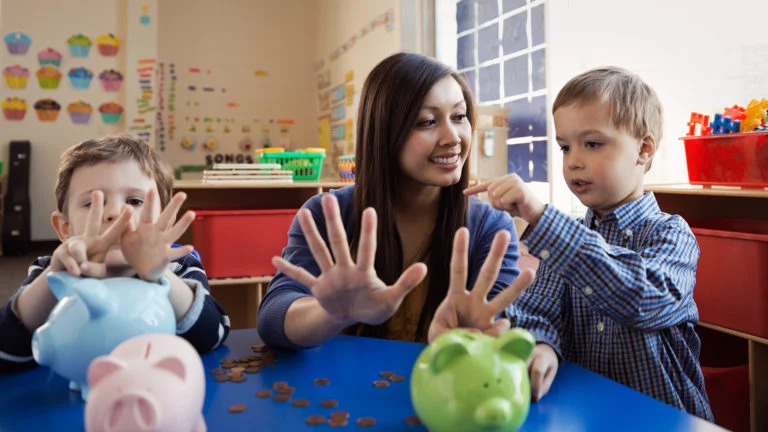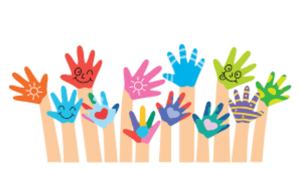In the era of automation and technology, it is evident that the world has started looking beyond hard skills. We can rely on technology, calculators and encyclopedias for facts, theories and figures. With a gigantic amount of highly qualified candidates spawning with their impressing CVs, the global business environment has also started calibrating different parameters. Soft skills have emerged as the yardstick to judge a candidate’s suitability for the professional environment. Also, soft skills are deemed necessary to have a cordial and fulfilling personal life. Therefore, it is essential to inculcate soft skills in children from an early age.

According to the World Economic Forum Future of Jobs, by 2050 soft skills would be considered critical for securing jobs. Collaborating skills, communication skills, critical thinking, creativity, problem-solving ability and emotional intelligence are the most important skills required in the workplace. Similarly, Harvard University conducted research that concluded job success relies 85% on soft skills or people’s skills and only 15% on technical or hard skills. The recent studies and research demonstrate the paradigm shift of focus of learning and requirements.
However, despite knowing the benefits of cognitive skills it is often undervalued. Slowly but surely there has been a shift of focus from rote learning methods to practical techniques. Many countries like Finland have induced the importance of soft skills in the educational curriculum to ensure the overall development of students. Consequently, the Japanese education system has been the archetype when it comes to spelling holistic development of students.
Japanese Education System
Whether it is achieving prowess in maths, science and language or appreciating nature, the holistic curriculum of Japanese education ensures all. The human-centric nature of the curriculum has moved beyond academic prowess. It lays equal focus on developing both cognitive and non-cognitive skills.

‘Chi-Toku-Tai’ is considered the defining element of the Japanese schooling system. “Chi ” which refers to “know” emphasizes establishing strong academic proficiency.”Toku” referring to “virtue” focuses on soft skills like self-discipline, teamwork and mindfulness. Similarly, “Tai” means maintaining physical and mental well-being. The philosophy aims at building a knowledgeable individual who can appreciate beauty and nature. The goal is to make children learn to hold a sense of justice while respecting the dignity of labour and life. Furthermore, the schooling is supplemented with moral education and integrated activities.
It is high time the world learns from the Japanese education system and works to inculcate soft skills in children. It is essential not only for making kids future-ready but also to induce sensitivity and generosity in them. Young minds with progressive thoughts and essential skills are vital for a better tomorrow.
Inculcate Soft Skills in Children
While your child is great at maths and science she may struggle when it comes to speaking her mind. You know she is a brilliant student and pays attention in class, then what could go wrong? Don’t know how to help your little human? Parents play a huge role in children’s lives. Brimming with solicitude they move beyond parental roles. They are their children’s not only first friends but also foremost teachers. Therefore, there is absolutely nothing that a parent can’t teach their child. We are aware that soft skills cannot be only taught within four walls. It extends beyond the classroom. So, let’s dive into the arena of people’s skills and know different ways to inculcate soft skills in children.

Also, don’t forget to check out Soft Skills: How to Inculcate Soft Skills in Children? to ensure a healthy and strong relationship with your child.
Role-Playing and Modelling

It’s no secret that children are great imitators! Purposeful play and role-modelling are essential foundation activities to help build soft skills in children. It not only helps them learn social cues but also boosts creativity. It will also induce analytical skills in them as they observe, play, compare and interpret in different surroundings.
Let Them Ask Questions and Encourage Them
A child’s curiosity is boundless! They learn by observing and enquiring. Therefore, let them probe endlessly and streamline their critical thinking. Along with developing social-emotional skills, this will help them express their individuality truly.
Active Listening

To be a good communicator, one has to be both an active listener and a great speaker. Active listening can be developed in children from a young age by letting them know you are interested in what they have to say. Give your full attention to your kid while they are speaking their curious mind. Make sure you maintain eye contact and reflect on their words. This ensures them that you are listening and understanding. Your children are sure to emerge as an individual with great communication skills if you practice active listening.
Introducing to Group Projects
Collaborating are cognitive skills that we require everywhere! Humans share common goals and they must know how to work in groups. School introduces kids to practice these skills from an early age by assigning group projects. Also, parents can introduce kids to group games that would foster feeling of oneness and unity.
Set Goals and Achieve Them Together
In our cutthroat competitive world, it’s susceptible to feel lost sometimes. Your kid might feel down if they fail in a test or have not performed well in a school activity. It’s important to let them know at such a tender age that these things do matter but not enough to make them feel bad about themselves. Tell them,” It happens, failing is a part of life” and move forward with them. Introduce them to activities beyond the classroom. Go on camping, biking and kayaking with them! This will instil self-confidence in them and they will know that their failures don’t define them.
A Lesson in Someone Else’s Shoes
Incorporating texts from literature and movies can help your children learn empathy. From an early age urge them to view the situation from another’s point of view. Read with them and if you are wondering how to raise a reader, check out this! When reading or watching with them ask thought-provoking questions, “Why do you think he did that? What would you have done if you had been in his place?” Empathy is an important cognitive skill in today’s world.
Podium’s Parting Words
Soft skills are an infinite set of skills that is vital for a child’s overall development. It can be effectively introduced to children in their foundation years by their parents. Early emphasis on holistic development results in confident, wholesome and responsible adults. Tailor activities and programs according to your child’s needs and strengthen their personality.
If you are not sure where to start from or are wondering how to go about it, enrol into classes or refer to professionals. Also, if you wish to inculcate other skills in your child, enrol them into dance classes, creative writing classes and art classes.
Share with your friends






